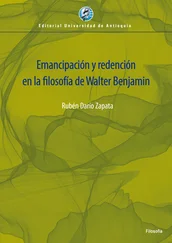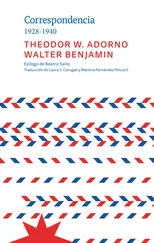It can be said that as much is known about the fall of Pompeii as if it had happened in our time, thanks to two letters written to the Roman historian Tacitus by an eyewitness of the Vesuvius eruption. These letters may be the most celebrated in the world. They tell us not only about the events that transpired, but also about how they were understood. They were written by Pliny the Younger, a great naturalist who, when the disaster happened, was eighteen years old and living with his uncle in Misenum, just next to Naples. His uncle, Pliny the Elder, commander of the Roman fleet, was killed in the eruption. I will now read to you from one of the letters:
By now it was dawn, but the light was still dim and faint. The buildings round us were already tottering, and the open space we were in was too small for us not to be in real and imminent danger if the house collapsed. This finally decided us to leave the town. We were followed by a panic-stricken mob of people wanting to act on someone else’s decision in preference to their own (a point in which fear looks like prudence), who hurried us on our way by pressing hard behind in a dense crowd. Once beyond the buildings we stopped, and there we had some extraordinary experiences which thoroughly alarmed us. The carriages we had ordered to be brought out began to run in different directions though the ground was quite level, and would not remain stationary even when wedged with stones. We also saw the sea sucked away and apparently forced back by the earthquake: at any rate it receded from the shore so that quantities of sea creatures were left stranded on dry sand. On the landward side a fearful black cloud was rent by forked and quivering bursts of flame, and parted to reveal great tongues of fire, like flashes of lightning magnified in size. 2
So writes Pliny, from whom you’ll hear more in a moment. But as I said, he watched the event from afar. The fiery cloud he describes was over Vesuvius; it didn’t directly affect Pompeii. Pompeii did not perish as the island of Martinique did at the beginning of our century, when it was devoured by a glowing cloud. 3Fire did not engulf Pompeii. Not even lava flows, which had proved so devastating in previous eruptions of Vesuvius, reached the city. No, Pompeii was actually buried by rain. But it was a strange rain. In another part of his letter, Pliny tells how the cloud over Vesuvius looked sometimes black, sometimes light gray. The excavation of Pompeii has shown us the cause of this spectacle: the volcano ejected by turns black ash and massive amounts of gray pumice stone. These layers are clearly discernible in Pompeii, to particular effect. To the layers of ash we owe something never to be found again on Earth: the perfectly clear and lifelike forms of people who lived 2,000 years ago. It happened as follows. While people were literally battered to death by the falling pumice, even as they tried desperately to protect themselves with towels and pillows, they were suffocated by showers of ash. The corpses covered in pumice rotted, and upon excavation, only skeletons remained. But in the layers of ash, something entirely different was discovered. Whether because the ash from inside the crater was wet, as many have suspected, or because cloudbursts after the eruption dampened the ash — whatever the reason, ash managed to insinuate itself into every wrinkle of clothing, every whorl of the ear, and everywhere between people’s fingers, hair, and lips. The ash then congealed much faster than the corpses decomposed, bequeathing us a series of lifelike human casts: of those who had just fallen to the ground and were struggling against death, and others such as a young girl, who lay down peacefully, with her arms cradled under her head, waiting for the end to come. Of Pompeii’s 20,000 residents, just over ten percent were killed in the catastrophe.
We see that for many, the primary concern was saving their possessions, leaving them too little time to save themselves. They locked themselves in cellars with their gold and silver treasures, and by the time the eruption came to an end, they were buried alive; there was no way to open the door and they starved to death. Others burdened themselves with sacks of jewelry and silverware and collapsed under their weight. Many, such as the uncle of Pliny — more of whose letter I shall presently read — opted not to flee inland, but rather to wait on the shore for the first opportunity to row out to sea. But the water was still too turbulent from the earthquake, and these would-be escapees were entombed on the beach. “Soon afterwards,” writes Pliny,
the cloud sank down to earth and covered the sea; it had already blotted out Capri along with the mountains on the mainland. I looked round: a dense black cloud was coming up behind us, spreading over the earth like a flood. “Let us leave the road while we can still see,” I said, “or we shall be knocked down and trampled underfoot in the dark by the crowd behind.” We had scarcely sat down to rest when darkness fell, not the dark of a moonless or cloudy night, but as if the lamp had been put out in a closed room. You could hear the shrieks of women, the wailing of infants, and the shouting of men; some were calling their parents, others their children or their wives, trying to recognize them by their voices. People bewailed their own fate or that of their relatives, and there were some who prayed for death in their terror of dying. Many besought the aid of the gods, but still more imagined there were no gods left, and that the universe was plunged into eternal darkness for evermore. A gleam of light returned, but we took this to be a warning of the approaching flames rather than daylight. However, the flames remained some distance off; then darkness came on once more and ashes began to fall again, this time in heavy showers. We rose from time to time and shook them off, otherwise we should have been buried and crushed beneath their weight. I could boast that not a groan or cry of fear escaped me in these perils, had I not derived some poor consolation in my mortal lot from the belief that the whole world was dying with me and I with it. 4
From this letter we can see that during the disaster, no one guessed its cause. Many thought the sun was about to fall to Earth, others that the Earth was flying off into the heavens. Some even believed, as a later historian would tell us, that they saw giants among the fiery clouds and thought that the ancient gods were rebelling against the reigning ones. Ash from the monstrous eruption reached as far as Rome, Egypt, and Syria, while accounts of the natural phenomenon took much longer to arrive. The survivors returned, not to reestablish their lives there — with ash between fifteen and thirty meters deep, this would have been impossible — but on the offchance of digging for and finding their belongings. Many more would lose their lives in the process, as they were buried alive under avalanches of debris. Over hundreds of years the city vanished from memory. In the last century, however, as the city reemerged from the Earth with its shops, taverns, theaters, wrestling schools, temples, and baths, the Vesuvius eruption of 79 A.D., which destroyed the city two millennia ago, appeared in a whole new light: what for its contemporaries meant the destruction of a flourishing city, for us today means its preservation. A preservation so precise and so detailed that we can read the hundreds of small inscriptions that covered Pompeii’s public walls the same way leaflets and posters cover ours, affording us a look into their day-to-day life: their city council disputes, their animal fights, their spats with superiors, their trades, and their taverns. Of these hundreds of inscriptions, we will conclude with one, which we can well imagine was the last; as the menacing, fiery glow fell over Pompeii, a Christian or Jew well versed in such matters must have scrawled this final and uncanny inscription: “Sodom and Gomorrah.”
Читать дальше












